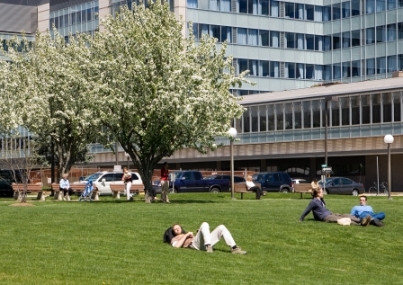Learning From an Anatomical Donor - a Medical Student's Perspective

On the first day of anatomy lab, my scared first year classmates and I wandered down the stairs and followed each other through those forbidding black doors that say, "Absolutely No Admittance." Today we were allowed in. Many students joked with each other to relieve the tension; others were silent. All of us, whether busily engaged in jokes or in dutiful thought, understood the magnitude of what lay before us. In a few moments we would be in the presence of a human body that would teach us the basics of medicine.
Class began. At first we saw his back. His head remained covered for a future date when we were ready for its emotional and scientific complexities. Naturally, I was curious to see his face on the first day of anatomy lab, but at the same time I dreaded it. I kept thinking that seeing his face might help answer my questions. Who was this mysterious stranger who felt so strongly about science? What experience had so strongly impacted this man to donate his body? Was he grateful for a successful childhood victory over leukemia? Was someone in his family in the health profession? Or was he perhaps just a thoughtful man who wanted to do something more with his body in death?
I saw the face of this elderly gentleman. The wrinkles on his forehead hinted at his age, the lines around his eyes suggested determination, and his hallowed cheeks told the story of a difficult passing. Even after months of studying every little detail of his body from the folds on his hands to tip of his toes, we still know very little about this man. What had he done with his life?
While the anatomy course has passed, my memories of the muscles, nerves and blood vessels of the body still remain. The vagus nerve isn't just something I had to memorize. It is now a picture in my mind; one of the many gifts that this man gave me. I will probably never know what caused this man to donate his body to science. I can only thank him for his special gift to science and to me. Unfortunately I can't thank him in person or send him a note, but I can show my appreciation in two ways. First, I can express my sincere appreciation to his family and all of those gathered here today. More importantly, I can spend the rest of my life using the gift he gave me to help my patients and to make his sacrifice worthwhile. I think that's what he would have wanted.